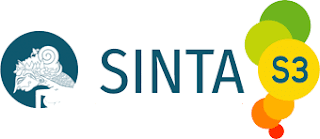Relations Green Business Innovation Top Knowledge, Entrepreneurial Business Awareness And Awareness Of Coconut Young (Cocos Nucifera Lin) And Its Impact On Environmental Sustainability
Abstract
This research was conducted to analyze the direct and indirect relationship between green business innovation dimensions through the Knowledge, awareness, and concern of young coconut entrepreneurs (Cocos nucifera lin). It could be done towards environmental sustainability to minimize greenhouse gas emissions caused by entrepreneurial activities that cause global warming. The number of samples used in this study was 60 respondents with the sampling technique using purposive sampling. The data analysis method used was bivariate correlation analysis and path analysis (path analysis). Result study found a significant positive relationship between green input, green process, green products, green marketing to Knowledge, awareness, and concern. Directly green information, green revolution, green development, green marketing have a positive and significant relationship to environmental sustainability. The variables of Knowledge, awareness, and concern have a positive and meaningful connection to ecological sustainability. From the results of the path analysis, the direct relationship value is greater than the indirect cost. Green, green, green, and green marketing through the variables of knowledge, awareness, and concern do not have an indirect relationship to environmental sustainability.
Downloads
Copyright (c) 2020 Riset

This work is licensed under a Creative Commons Attribution-NonCommercial-ShareAlike 4.0 International License.







